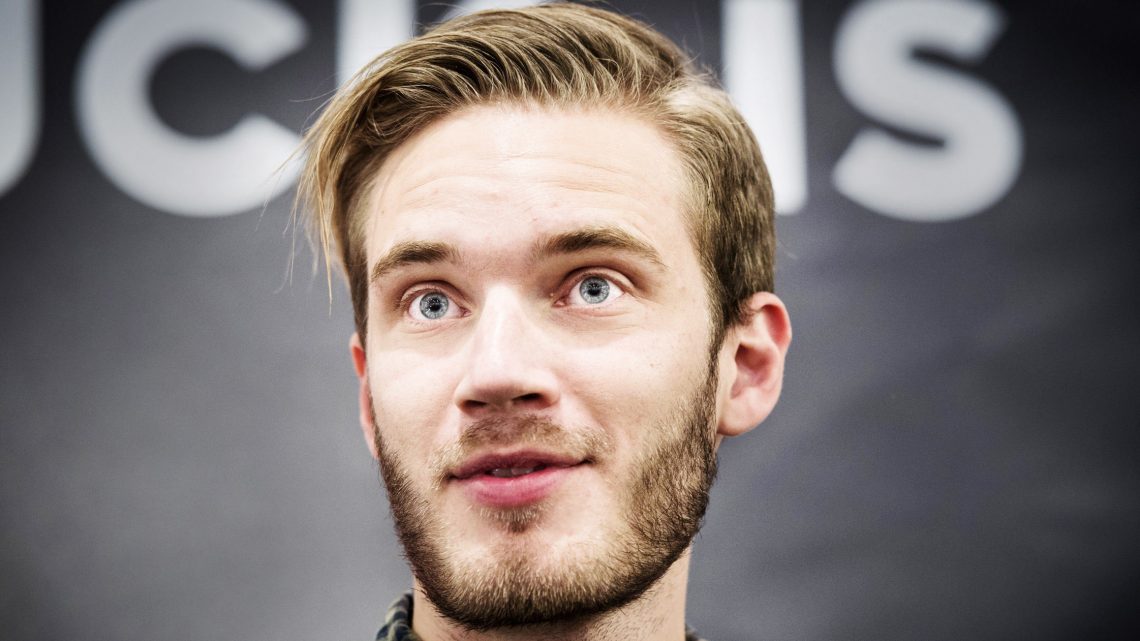
PewDiePies Fall Shows the Limits of LOL JK
April 16, 2018YouTube star PewDiePie’s fall from grace riled uphis 53 million subscribers, but unless you’re a Gen-Z videogamer, you may find the name splashed acrossmany a headline this weekunfamiliar.Lucky you. AfterThe Wall Street Journal reported on his pattern of using anti-Semitic jokesin his videos,Disney’s Maker Studios cut ties with the internet celeb, and YouTube canceled the second season of his streaming reality show. People might applaud what look like swift measures, but themoves are long overdue.
PewDiePiethe online alter ego of 27-year-old Swede Felix Kjellbergis famous for two things: outsized reactions tothe games he plays, and trolling. Given the impossibility of knowing whether he means what he says, you can’t always know how to respond when he does something like, say, hire people to hold up a sign saying“Death to all Jews.” His fans take him seriously but not literally; his critics take him literally but not seriously. Sort of like another divisive figurein the news these days.
But PewDiePie started racking up questionable jokes almost from the start of his YouTube career nearly seven years ago. Given that long tradition, and the fact he recently claimed that YouTube discriminates against him because he’s white, his fanbase goes beyond gamers. PewDiePie has become a bona fidewhite-supremacist hero.
Hiding Behind “LOL JK”
PewDiePie enjoys extraordinary popularity. His YouTube audience exceedsthe subscriber base of Hulu, Apple Music, andThe New York Times combined. Fansadore him because he embodies so much of whatYouTubeand, really, the internetloves: zaniness,rough-at-the-edges authenticity, and deadpan mockery.
That mix, though, often leads to a classic internet problem. “Offline you have context clues. You know if someone is going to punch you in the face, right?” says Whitney Phillips, author of This Is Why We Can’t Have Nice Things: Mapping the Relationship Between Online Trolling and Internet Culture. “But on the internet, you can’t tell if something was intended as a joke or a sincere expression.” Offensive “humor” further confuses the mix:Whileit’s important to call outthings like racism, sexism, ableism, and homophobia, doing so plays into trolls’ hands. They insist they aren’t spouting hatred, only proving that you can’t take a joke.
PewDiePie long ago mastered this move. He uses“gay,” “retard,” and “autistic” as playful insults. He makes plenty ofrape jokes. And he spews out all kindsof racist stuff, too. Take, for example, hiscommentary in this 2011 let’s-play video that includes the Swedish version of the N-word.
In the subtitles, he translates the word as“black,” but it’s hard to argue the word he uses is anything but a racial slur. (The Swedish Ornithological Society evenrenamed birds to eliminate any reference to the term.) Another Swedish YouTube user pointed this out and criticized PewDiePie for usingthe term but PewDiePie’s supporters, who call themselves the Bro Army, didn’t care. Neither did YouTube.
He used the N-word again, in English, in this video posted last month.
His fans’ negative reactions spawned two hashtag movements on Twitter: #pewdiepieisover and the more gleeful #pewdiepieisoverparty. But this is Twitter, so of course the racist elements of the Bro Army quickly co-opted them.
#pewdiepieisover Geezes peoples, calm the fuck down he said a word with no racist intentions. Get back to the cotton field and contemplate.
lemmy antonis (@lemmyantonis) January 12, 2017
PewDiePie’s casual offensiveness doesn’t end with the N-word. In another let’s-play video, he mentions thathe can’t see people when they’re “too black,” and fans mention thathe’s been known to say that “black things” scare him.
This 2017 video, in which he decided whether he would “smash,” pass on, or sell particular people into slavery is basicallya loaded baked potatoof racist and misogynist tropes.
In this face-swapping video he repeatedly uses an image of actress Leslie Jones to representHarambe, the gorilla killed in the Cincinnati zoo last year. I shouldn’t have to explain what’s wrong with that.
None of this means that anything that offends anyoneis off limits as a joke. But jokes that goof onracism are different than jokes that rely on race—a fine line to be sure. Even comics known to get away with it (like Sarah Silverman) sometimes miss the mark. What PewDiePie does in these videos is the 4chan version: repeat racist terms and insist they have outlived their offensiveness and are now hilarious.
But PewDiePie recently wentbeyond racist joking.In December 2016 heannounced plans to delete his YouTube channel once it reached 50 million subscribers because the platform had changed its homepage, a move that meant his viewers saw fewer videos, and less often. Coming from so towering a figure, this was a big deal. Bigger still? His reasoning. Ina jittery rant, he claimed that “YouTube wants my channel gone. They want someone else on top. They want someone really extremely cancerous, like Lilly Singh. Im white. Can I make that comment? But I do think thats a problem.
Singhbetter known by her YouTube alias, Superwomanis a Canadian-Indian rapper and comedian whose songs, parodies, and calls for positivity and #GirlLove have wonher more than11 million subscribers. Days after his rant, facingwithering criticism, PewDiePie claimedeverything he said about Singh was satire. The belated“LOL JK” is, of course, a defense favored byMilo Yiannopoulos and othertrolls, one thatraises questions of intent versus effect. “Its the impact that matters,” Phillips says. “I think weve reached an era where that ‘I was just trolling’ excuse needs to be retired.”
Becoming an Alt-Right Darling
PewDiePie’s reaction, though, also tooka step in a new direction. By claimingthat mediaoutlets takinghis words literally amounted to slanderand by calling publications that did so“the clearest form of cancerhe added media paranoia to his recipe of open prejudice and dog-whistling, making himan immediate poster boy for white supremacists. Check out the banner leadingneo-Nazi Andrew Anglin’s The Daily Stormer, which the Southern Poverty Law Center calls the top hate site in America.

The image has been up for weeks, says Heidi Beirich, director of the SPLC’s Intelligence Project. “With PewDiePie, the question is, How did it take them so long?” shesays of Disney and YouTube dumping PewDiePie. “Neo-Nazis have been loving this guy. And because he has this massive following, they see those people as supporting their views.”
If anything, Disney and YouTube elevated PewDiePie’s standing in the so-called alt-right movement’s eyes by sending him packing. Just look at the alt-right’s preferred social media platform, Gab.


So, intentionally or not, the YouTube celebrity stepped intothe political arena.“There has always been a strong feedback loop between public figures, broadcast media, and social media activity,” says Anthony McCosker, an expert ondigital and social media at Swinburne University of Technology in Melbourne, Australia. “I think the current push toward nationalism, tapping into exclusionary and racist sentiment, is driven and emboldened by online activity.”
This all places much of theresponsibility onDisney and YouTube;chipping away fromPewDiePie’s already staggering annual income ($15 million in 2016) doesn’t prove much to anyone. “They’re handmaidens to some pretty ugly sentiments,” Beirich says. “YouTube has refused to develop AI systems to hunt down extremist material. We at SPLC have been doing their legwork and reporting it for them, but that’s an inefficient system.”
You’ll have trouble finding consensus on what to do with someone like PewDiePie, especially because his reach is so global. In Austria this week, authorities arrested a man for dressing as Hitler in the Nazi leader’s hometown. Should PewDiePie enjoyspecial privileges because his Hitler costume appeared online? In America, satire has always been protected speechand there are overwhelmingly compellingreasons to keep it that waybutin a time of “alternative facts,” satire becomesincreasingly hard to identify.
You can’t smooth the ripples PewDiePie’s videos created, but you canslow their spread. PewDiePie’s business model revolves around grabbingviewers’ attention, holding it, and keeping them coming back for more. The real #pewdiepieisoverparty will happen when people start clicking Unsubscribe.
Read more: http://www.wired.com/

